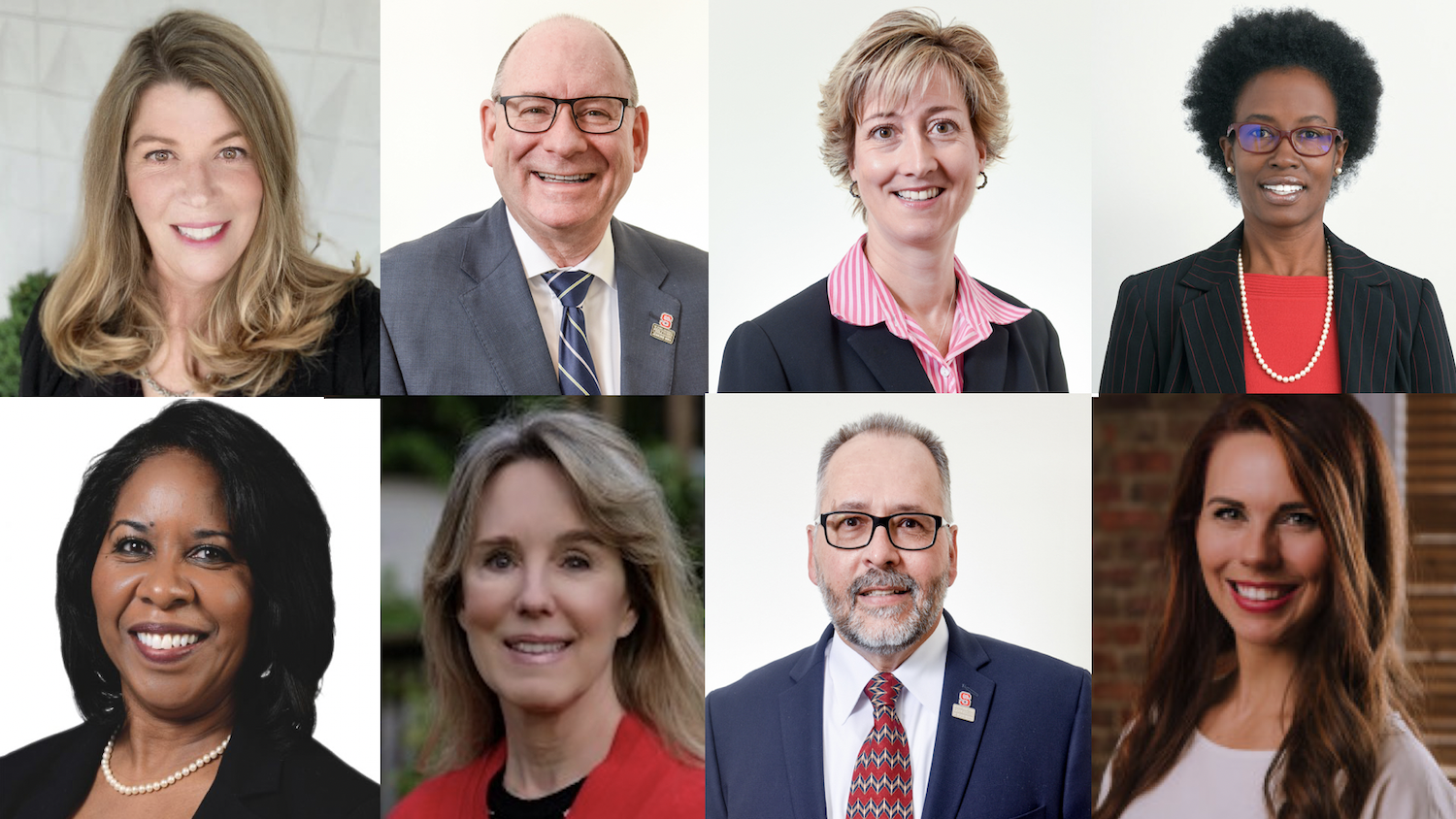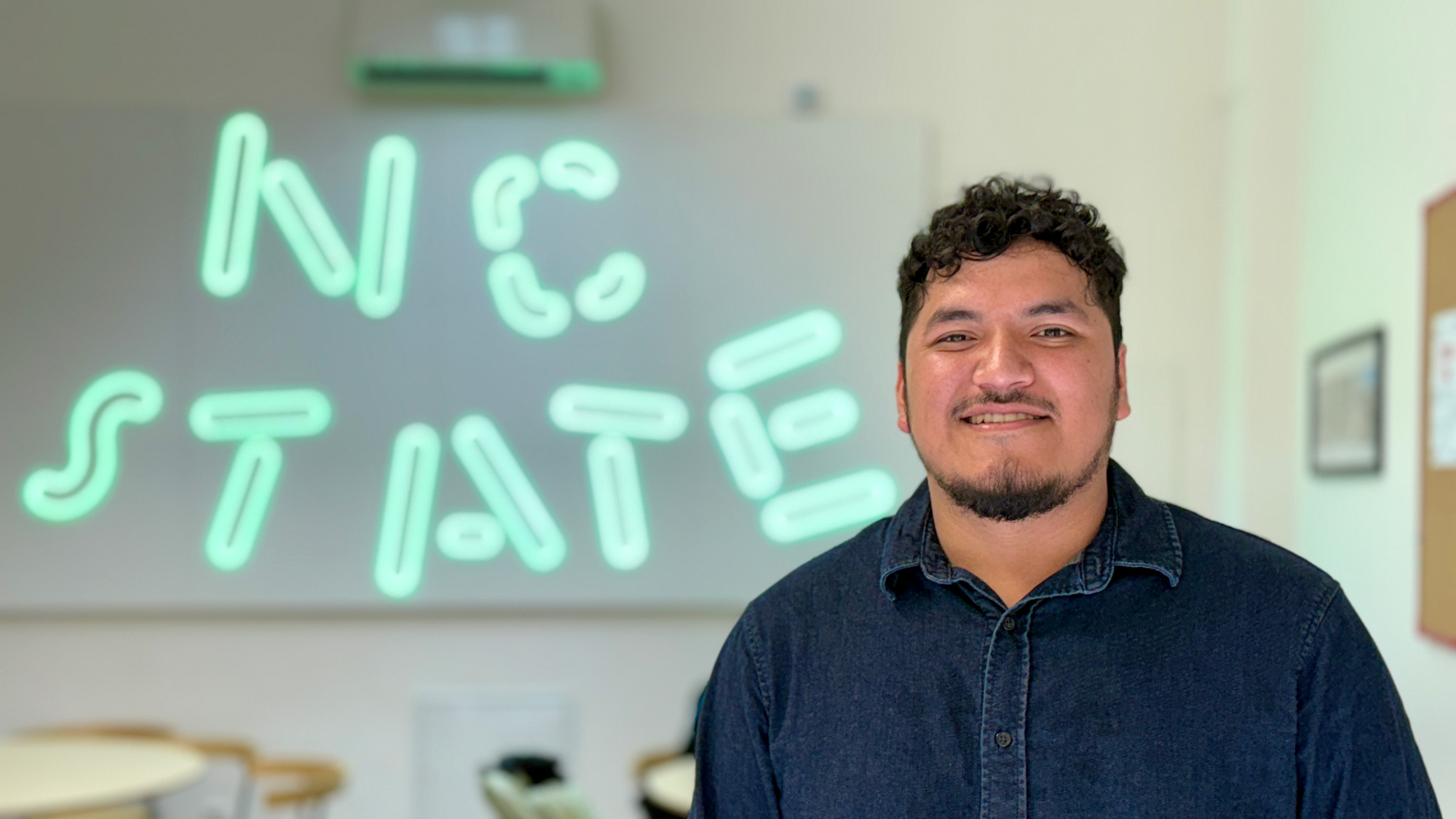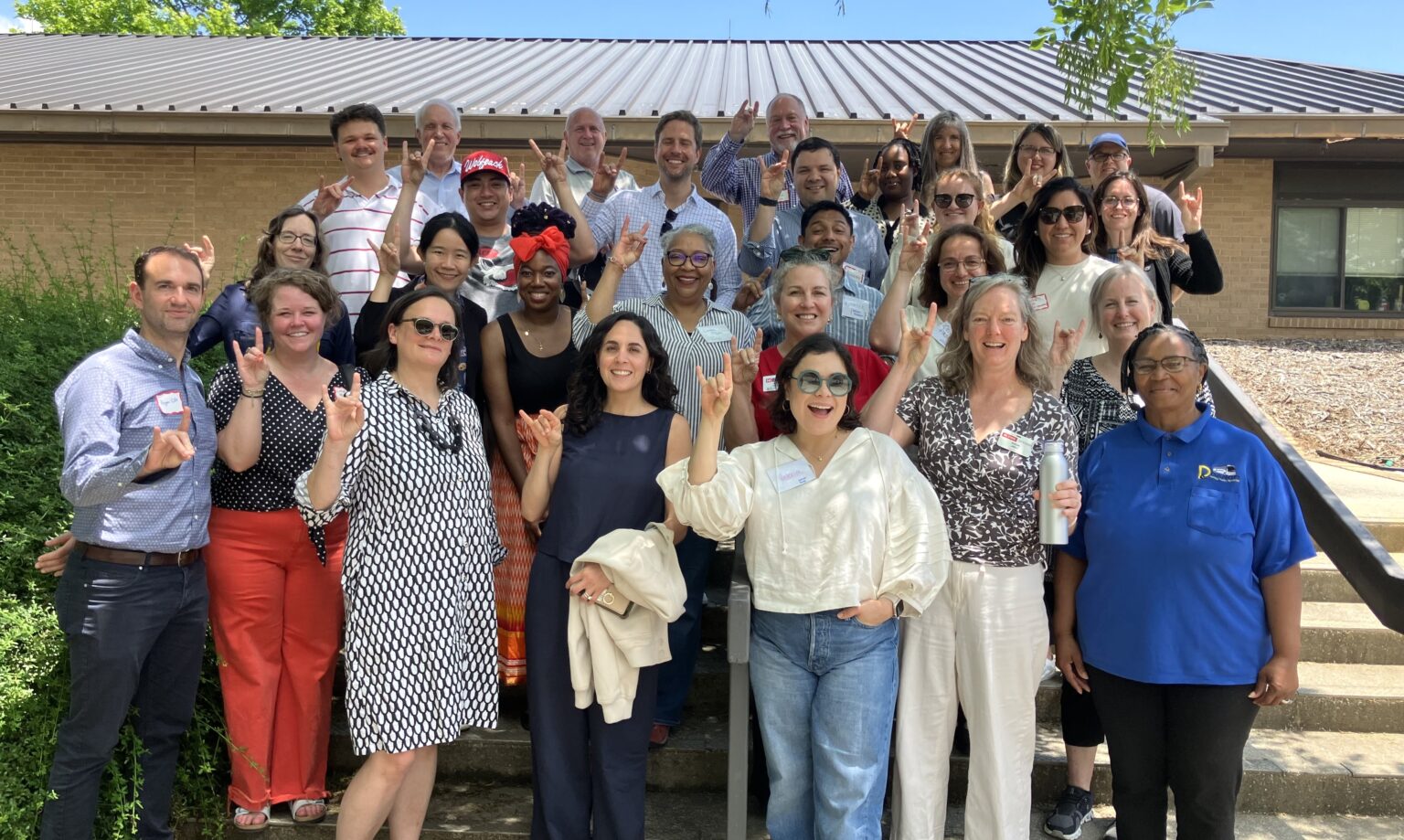By Lea Hart
Even prior to the COVID-19 pandemic, the Jenkins Graduate Programs Career Center team was a team of innovators.
So when the pandemic hit, they put that drive for innovation to work. The group managed to not only maintain what was offered to students, but to actually grow the ways in which they served students and to expand on the number of business and industry partners with whom students had contact.
They implemented virtual career coaching check-in meetings for working professionals and full-time MBAs, and saw working professional student meetings increase by 56 percent versus a year earlier, and full-time student meetings increase 30 percent versus a year earlier. Corporate presentations in the 2020 fall semester saw a 30 percent increase over fall 2019. Events such as the MBA Mix & Mingle, held virtually due to the pandemic, enjoyed a higher level of attendance by companies and MBA students thanks to the virtual format.
And that’s just to name a few of the ways the team seized opportunities and embraced change.
Bev Porter, director of the Career Center for Jenkins Graduate Programs, said some pre-pandemic innovations helped lay the groundwork. The implementation of an interactive career website allowed both students and employers to engage through that platform.
“It’s like a one-stop-shop – no matter what virtual or tech tools they need, everything is in one place,” Porter said. “That was enormously helpful for this virtual environment that we find ourselves in.”
Supporting students academically, professionally and personally
As it became clear that the repercussions of the pandemic would not be short-term, the team also began to change its approach and to provide tools to help students navigate this new world of networking and career management.
All MBA career development events moved to a virtual format, incorporating technology tools and teaching engagement practices to promote student-to-student and student-to-instructor interactions which naturally happen in an in-person environment, Porter said.
New career programming was added with topics such as “How To Increase Your Visibility While Working Remotely” and “How To Interview Virtually.” The team also created customizable Zoom background templates for students to brand themselves in a virtual environment, she said.
At the same time, students were facing challenges that weren’t just about a change in the format of their job search.
“What we didn’t anticipate is, this was pretty disruptive for students and for staff,” Porter said. “They weren’t just at home trying to figure out their career, many now had kids in the background and other outside concerns they were faced with.”
Because of that, coaching sessions became not just about career discussions, but also became “sanity checks,” Porter said.
“There was a lot of anxiety, for students and for my team as well,” she said. “There were a lot of unknowns.”
John Hutchings, associate director of the Career Center for Jenkins Graduate Programs, is responsible for the working professional population in the MBA program. These students are employed as they pursue their degree, and usually are looking to develop a skill set in graduate school to transition to a higher level job in their current organization.
This group faced a unique set of challenges in that their entire lives went virtual when the pandemic hit, Hutchings said. They were already taking classes online or in-person in the evening, but now faced a virtual work environment as well.
It was very important to us to make sure that we were more engaging when we were coaching and teaching in a virtual environment.
“It was very important to us to make sure that we were more engaging when we were coaching and teaching in a virtual environment,” Hutchings said. “We had to do what we could do to break through Zoom fatigue.”
These students were also sometimes just trying to make it through the week as they faced new challenges in school, work and family life, he said.
It became particularly important to check in, not just as career coaches, but almost as counselors during this time.
“In a coaching environment, I’ve always let the student direct the conversation based on what their pain points are at that time,” Hutchings said. “We were being more sensitive and aware that these pain points were now coming from different directions.”
Staying engaged with employers
The same was true with employers as they faced so many unknowns. In response, the team created short, two to three minute videos to send to business partners to let them know how they could continue to engage, how they could reach out to students, and to invite them to virtual corporate presentations, as well as to see how the team could support these employers during a tumultuous time, Porter said.
Steven Allen, interim associate dean for Academic Programs, noted the team’s success in opening new communication channels and reassuring students, as well as coming up with new strategies to best engage with employers.
“The result was a resounding success — they found that Zoom was their new best friend,” Allen said. “Companies that were not willing to come here to interview live were more than happy to do so virtually.”
We have a great career team here at Poole that is 100 percent dedicated to student success.
“We have a great career team here at Poole that is 100 percent dedicated to student success.”
Through it all, the team continued to support each other as well. Porter said the career team is like a family, and would get together virtually a few times a week to not just talk business, but to also check in with each other.
“We focused a lot on ourselves and our families,” she said. “We adjusted the times that we met, and we gave ourselves a lot of forgiveness.”
The group continues to test ideas and implement best practices for the future, Porter said. She envisions a future with a hybrid of new practices and returning to the old ways as the pandemic becomes less of a concern in the future.
Networking, for example, is best done in-person, she said. At the same time, Porter said virtual corporate presentations are a great way to bring more organizations to campus who might not otherwise make the trip due to geography.
“We are learning that some employers do want to stay virtual,” she said. “Others, like IBM, have a presentation scheduled for this fall and are already saying they want to come to campus.”
- Categories:



